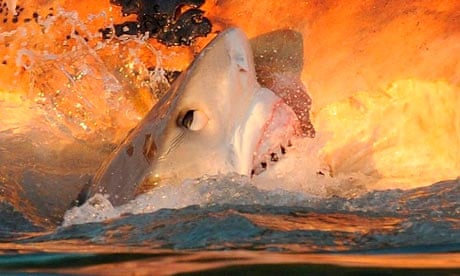Gruesome reports of attacks may raise fears that there is a sudden rise in the number of people being killed by sharks. But the evidence does not support this.
According to the International Shark Attack File, run by marine biologists at the Florida Museum of Natural History, there were 79 unprovoked shark attacks in 2010 (and six fatalities). This was the highest since 2000, when there were 80 unprovoked attacks. Between 2001 and 2010, an average of 4.3 people a year died as a result of shark attacks, with most attacks in North American waters.
The number of attacks has steadily grown over the past century but that reflects better reporting as well as the increasing number of people and the time they are spending in the sea.
"The numbers are pretty static, you get good years and bad years," said Dr David Gibson, managing director of the National Marine Aquarium in Plymouth. "What primarily drives the numbers is the number of people that are interacting with sharks. Foreign holidays are a lot more popular now, people have got large amounts of disposable income despite the recent economic blip. People are surfing, swimming, snorkelling, diving a lot more than they ever did in the past. We are going into the shark's environment and interacting with them a lot more. That's an easy explanation for any variances in the numbers."
It is not clear why sharks would approach humans in a normal scenario. Gibson said the approaches could have something to do with the animals being at the top of the food chain, which means they accumulate pollutant heavy metals from their food.
"Heavy metal toxicity is fairly well-documented in sharks, levels of cadmium, lead, zinc, copper, you'll find high levels of those metals. Heavy metals have got a significant effect on their sensory perceptions. It particularly knocks out their sensory perceptions, so they're not as alert and not as able to pick up their prey items. Large sharks have a diminished sense of sensing their environment, it can lead to aberrant behaviour."
Gibson also pointed out that shark number are dwindling.
"The other side of the equation is the 100m sharks a year that humans kill," he said. "These are killed for either consumption, for the trade in shark fins for the far east, or simply as bycatch of commercial fisheries. We estimate there are only 10% of the sharks that were in the oceans 15-20 years ago. We're hunting them to extinction."
